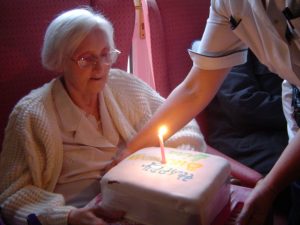Each week, Dr. Mauk shares thoughts relevant to Baby Boomers that are aimed to educate and amuse.
Guest Blog: 5 Ways to Help Improve Your Memory
Do you often misplace your car keys? Or have trouble remembering your personal trainer’s name at your favorite gym? You are not alone. Everybody goes through moments of forgetfulness, and the occasional memory lapses every once in a while. Though it’s common to forget things when too busy or preoccupied, a recurring memory loss should not be taken lightly.
Age, genetics, and underlying mental disorders are common factors that lead to memory loss. In some instances, memory loss is manageable through diet and lifestyle changes. Read on to discover five research-backed ways to sharpen your memory naturally.
1. Get adequate sleep
Poor sleeping habits are a major cause of memory loss among the young and the elderly. Sleep enhances memory consolidation, the process where short-term memories transition into long-term memories. Sleep deprivation and irregular sleeping cycles can perpetrate cognitive impairments, negatively affecting your brain’s ability to synthesize and retain information.
Doctors and wellness specialists recommend at least seven to nine hours of interrupted sleep for an adult. Research studies show that individuals are likely to perform better in information recall tests when they’re well-rested compared to when they have sleep deprivation.
2. Reduce sugar intake and high-calorie diets
A high sugar intake is often associated with many health complications ranging from chronic illness to cognitive impairment. A 2017 study shows the linkage between high sugar diets and the development of Alzheimer’s disease. Researchers noted that a high intake of sweet beverages like processed fruit juices and soda reduces the total brain volume, especially in the regions responsible for short-term memory retention.
Reduced brain volume is often an early symptom of Alzheimer’s disease. Reducing your sugar intake will boost your memory retention and overall health condition. Whenever you develop a sugar craving, try consuming naturally sweet foods such as fruits while limiting the intake of processed foods with artificial sweeteners.
Along with cutting back your sugar intake, lowering your overall calorie intake can do wonders for your memory recall. Regular consumption of cakes, bread, cookies, and other diets rich in refined carbohydrates raises the risk of cognitive decline, reduced memory retention, and even dementia. High-calorie diets lead to gradual cognitive decline because they cause inflammation of certain brain parts.
3. Practice meditation and mindfulness
Mindfulness refers to tuning your mental state to focus on present situations and boost awareness of your feelings and surroundings. Mindfulness is a technique common in meditation, and it helps improve memory. Studies show that mindfulness and meditation enhance cognitive function by lowering the triggers for brain degeneration.
Researchers believe that practicing mindfulness can improve long-term and short-term information recall. In one study, researchers conducted a psychological survey of 293 patients where one group underwent mindfulness sessions while another group did not. Those who took part in the mindfulness sessions showed better memory performance than those who skipped the mindfulness sessions.
Besides improving memory retention and psychological wellbeing, mindfulness also lowers the risk of age-induced cognitive impairment.
4. Practice brain training
In the same way, exercise improves physical health; your brain needs regular involvement to function optimally. Mental workouts play an essential role in brain development because they enhance your problem-solving and memory recall abilities. Chess, crosswords, word puzzles, and Tetris are examples of popular brain games you can use for your mental workouts.
Recent trials show that setting aside only 15 minutes for brain training five days a week can significantly boost mental acuity. What’s more, researchers believe that brain training workouts can lower the risk of dementia among the elderly. Brain exercises are a common practice in many Alzheimer’s care programs.
5. Reduce your alcohol intake
Excessive alcohol consumption poses many health risks and negatively affects memory retention. It’s no wonder people misplace their car or house keys after a night of heavy drinking. A high alcohol intake raises your blood alcohol composition to levels that alter brain function resulting in poor memory retention.
A college study showed that students who consume six or more drinks within a short time exhibited delayed memory recall than those who didn’t consume alcohol.
Conclusion
Eating a balanced diet, exercising regularly, and leading an overall active lifestyle is crucial in improving brain health and memory retention. Check out the site below for more tips on boosting memory recall.







